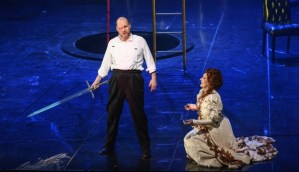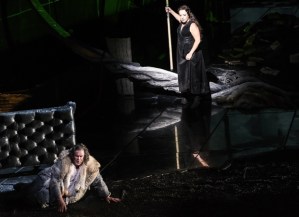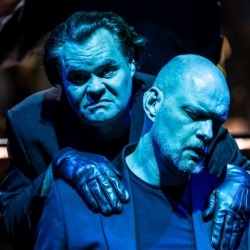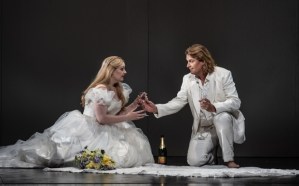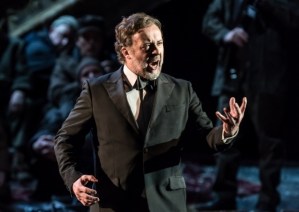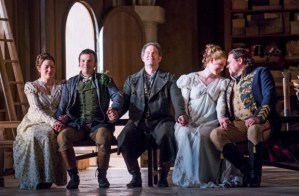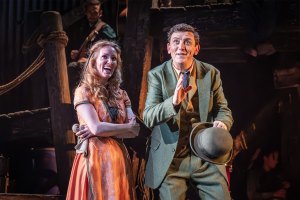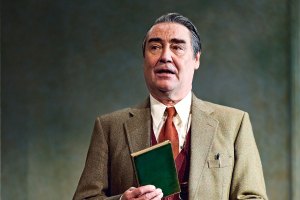Review: Siegfried (Royal Opera House)
Episode three of Wagner’s ”Der Ring des Nibelungen” at Covent Garden
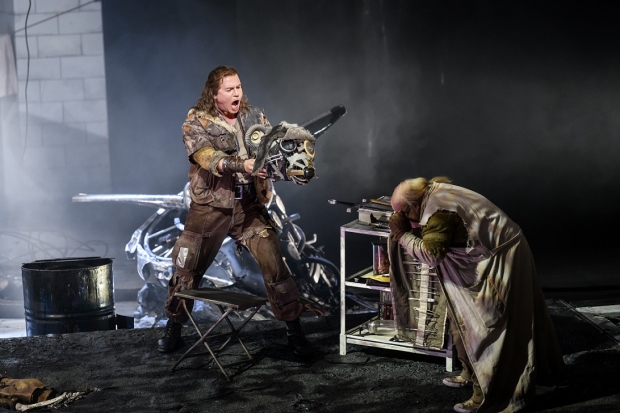
© Bill Cooper
Something's clicked, big time, with this third instalment of the ROH Ring. After impressive but flawed outings of Das Rheingold and Die Walküre comes Siegfried and, if you'll forgive a clash of faiths, the stars have aligned in Valhalla. Keith Warner's finicky production has relaxed, Antonio Pappano's conducting has found its drive and a sensational cast has delivered a performance of rare distinction.
It takes the Royal Opera six hours to plough through Siegfried, and in truth the never-ending intervals are the only contentious point about it. Poor Brünnhilde's long sleep unfolds in something like real time while hungry diners attack their roasts.
It's the opera where the child of Siegmund and Sieglinde is grudgingly raised by a gold-hungry dwarf, Mime, who believes that this grandson of Wotan will defeat the dragon Fafner and free the Ring of power for him to grab. Yes, this is the same Norse Moria that Tolkien mined for his hobbit saga. Wotan himself is now a diminished figure who wanders the earth, only to be trounced by the headstrong boy whose arrogance is the very quality he requires (as the prophesied ‘hero who knows not fear') to break the spell that surrounds the banished Brünnhilde.
Warner's recurring aeroplane image from the earlier operas is rounded off as Mime and Siegfried subsist around a shattered fuselage and Wotan materialises from its cockpit. John Lundgren presents the god very much as a humanised Wanderer (as Wagner renames Wotan in Siegfried) and on opening night sang him with the full weight of his talent, now fully restored after his earlier vocal problems.
Also back for more are Brindley Sherratt, a spectral Fafner until the coup de théâtre that heralds his demise, together with Johannes Martin Kränzle as the malign Alberich and the German contralto Wiebke Lehmkuhl in her second appearance as the Earth Goddess, Erda, whom Wotan dismisses – or, in Warner's interpretation, destroys and thereby seals his own annihilation. All are very fine indeed, appropriately cast and in prime vocal form. But the most welcome returning artist is Nina Stemme as Brünnhilde, her climactic duet with her rescuer immensely affecting.
Stefan Vinke shoulders the prodigious title role with an assurance born of long experience. The German Heldentenor has sung 100 Siegfrieds in little more than decade, yet his voice is still in prime condition even though he carries the lengthy drama on his shoulders. His relationship with the fragile, stratospheric Woodbird of Heather Engebretson is an especially touching partnership of opposites.
It was in the opening act of this third opera that Covent Garden's Ring finally caught fire. Vinke and Gerhard Siegel (Mime) sparred and sang with more dramatic energy than any of their colleagues had hitherto displayed, and their characters' layered interactions were riveting. It helps that both tenors appeared six years ago in this production and have the staging in their muscle memory, but even so the tingle of an authentic relationship coursed like adrenaline through their veins. Their protracted opening scene brought the best out of Pappano too and seemed to light his blue touch paper for the rest of the run.
So: three down and just Götterdämmerung to go. Stand well back and watch the sparks fly.




